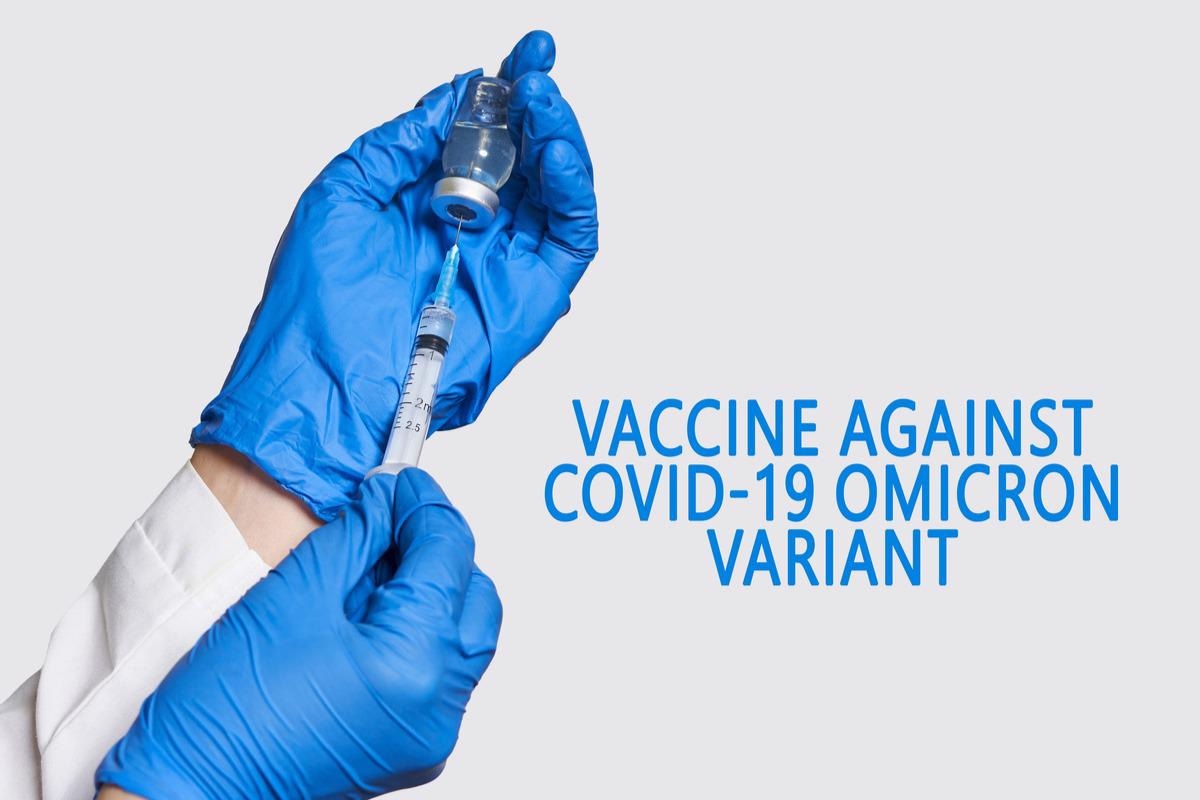A recent study posted to the bioRxiv* preprint server demonstrated the development of a potential severe acute respiratory syndrome coronavirus 2 (SARS-CoV-2) Omicron variant-specific messenger ribonucleic acid (mRNA) vaccine candidate, called receptor-binding domain (RBD)-Omicron mRNA (RBD-O mRNA) vaccine and the evaluation of the same in mice models.
 Study: An mRNA vaccine candidate for the SARS-CoV-2 Omicron variant. Image Credit: G.Tbov/Shutterstock
Study: An mRNA vaccine candidate for the SARS-CoV-2 Omicron variant. Image Credit: G.Tbov/Shutterstock
Background

 *Important notice: bioRxiv publishes preliminary scientific reports that are not peer-reviewed and, therefore, should not be regarded as conclusive, guide clinical practice/health-related behavior, or treated as established information.
*Important notice: bioRxiv publishes preliminary scientific reports that are not peer-reviewed and, therefore, should not be regarded as conclusive, guide clinical practice/health-related behavior, or treated as established information.
The recently emerged SARS-CoV-2 Omicron variant harbors more than 30 mutations in its spike (S) protein region compared to about 15 in other SARS-CoV-2 variants. Further, nearly 15 of these mutations are located in the RBD of the Omicron.
These mutations provide an extensive capacity for Omicron to escape the neutralizing antibodies responses induced by the current vaccines based on the original strain of SARS-CoV-2, indicating the lower efficacy of these vaccines in preventing Omicron infections. Thus, there is an urgent and significant need for developing vaccines efficient in mitigating the Omicron infection.
About the study
In the present study, the scientists used a non-replicating mRNA vaccine platform to develop and assess the coronavirus disease 2019 (COVID-19) vaccine specific to the SARS-CoV-2 Omicron variant.
Two mRNA constructs encoding the RBD of the SARS-CoV-2 Omicron and wildtype (WT) strains were developed and termed RBD-O and RBD-WT, respectively. The mRNA constructs were validated by transfecting HEK293T cells and analyzing the target protein expression, which are proteins with approximately 35 kilodaltons (KDa) molecular mass.
The mRNA vaccine stocks were generated by formulating the antigen-expressing mRNAs with lipid nanoparticles (LNPs). In vivo expression and delivery of the mRNA vaccines were determined from bioluminescence imaging of mice injected with firefly luciferase (FLuc) reporter-encoding mRNA-LNP preparation at different time stamps.
Further, through immunization experiments in the mice, the efficacy and immunogenicity of the mRNA vaccine candidates were assessed. The study group consisted of two lots of female BALB/c mice comprising eight animals each vaccinated intramuscularly (i.m.) with RBD-O mRNA and RBD-WT vaccines, respectively, at zero and second weeks. A group of five mice injected with FLuc-expressing mRNA-LNP formulation served as the control group for the experiments. Individual sera samples from the mice were collected at weeks two and four for functional analysis and antibody titration.
Study results
The results indicated that the RBD-O mRNA vaccine developed in the current study, encapsulated with LNPs, encoded the RBD of Omicron.
Significant RBD-WT binding activity was observed in sera samples collected following two weeks of RBD-WT mRNA vaccination, and it gradually increased. By contrast, none of the sera samples vaccinated with RBD-O mRNA vaccine demonstrated binding affinity towards RBD-WT at the second or fourth week.
None of the fourth-week antisera from the FLuc group neutralized the Omicron-pseudovirus (PV), Delta-PV, and WT-PV. RBD-WT mRNA-vaccinated sera samples potentially neutralized the WT-PV, followed by the Delta-PV, and a few neutralized the Omicron-PV. Antisera from RBD-O mRNA-vaccinated groups substantially neutralized the Omicron-PV and did not exhibit cross-neutralization towards Delta-PV or WT-PV.
The neutralizing antibody titer 50 (NT50) of the individual mouse sera samples vaccinated with the RBD-WT mRNA vaccine was less than two times lower than NT50 of the WT against Delta. Still, it was drastically reduced or absent against Omicron. In contrast, every individual mouse sera sample vaccinated with the RBD-O mRNA vaccine efficiently neutralized Omicron with NT50 ranging from 400 to 3200. However, no individual mouse sera samples immunized with RBD-O mRNA vaccine neutralized the Delta or WT strains.
The neutralization profile of the RBD-WT mRNA vaccine was opposite to that of the RBD-O mRNA vaccine as the former vaccine exhibited significant cross-neutralization towards the Delta variant and not against Omicron; in contrast, the latter only neutralized the Omicron variant.
Conclusions
The study findings show the practicality and efficacy of the RBD-based mRNA vaccine selective for the SARS-CoV-2 Omicron variant by developing an Omicron-specific mRNA-based vaccine named RBD-O mRNA vaccine. Significant neutralization was observed against Omicron following two doses of the RBD-O mRNA vaccine. In contrast, this vaccine was ineffective against Delta and WT strains, thus indicating the vaccine's immunogenic potential towards Omicron and lack of cross-neutralization of other SARS-CoV-2 variants. The study also furnishes crucial information for developing bivalent or polyvalent COVID-19 vaccines with wide-spectrum efficacy.

 *Important notice: bioRxiv publishes preliminary scientific reports that are not peer-reviewed and, therefore, should not be regarded as conclusive, guide clinical practice/health-related behavior, or treated as established information.
*Important notice: bioRxiv publishes preliminary scientific reports that are not peer-reviewed and, therefore, should not be regarded as conclusive, guide clinical practice/health-related behavior, or treated as established information.